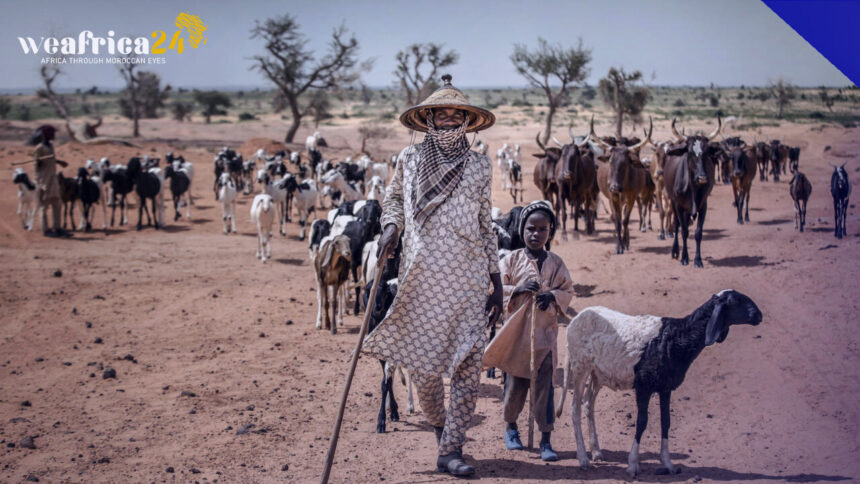For two days in Abidjan, the Economic Community of West African States (ECOWAS) convened pastoralism professionals from the region to devise a common strategy for better supporting this sector. The pastoral industry faces numerous challenges, including climate change, land access issues, and the insecurity linked to the presence of terrorist armed groups in the Sahel. However, the obstacles remain substantial.
Whether they come from Nigeria, Niger, or Burkina Faso, the observation is consistent: access to water and land is challenging for herders. Moreover, insecurity has dramatically altered transhumance routes.
Herders claim to be on the front lines, victims of cattle theft by alleged armed groups, and they also feel stigmatized in villages.
“Herders do not feel safe anywhere, whether in pastoral areas or even approaching cities. Moreover, some communities no longer want to coexist with these herders. Beyond those referred to as jihadists, some bandits seek to steal and take hostages,” explains Dodo Boureima, President of the Billital Maroobé network (RBM), which brings together 75 herders’ organizations in about ten West African countries, extending to Chad. “We need to secure livestock mobility,” emphasizes one of the participants in this meeting. Several farmer organizations have marked the routes, but an essential tool is missing.
Recognizing the existing community texts primarily involves implementing the principle of free movement of goods and people. “Measures have been taken but have struggled to be implemented,” explains Dr. Maguette Kairé, the coordinator of the Natural Resources Support Program of the Permanent Inter-State Committee for Drought Control in the Sahel (CILSS).







